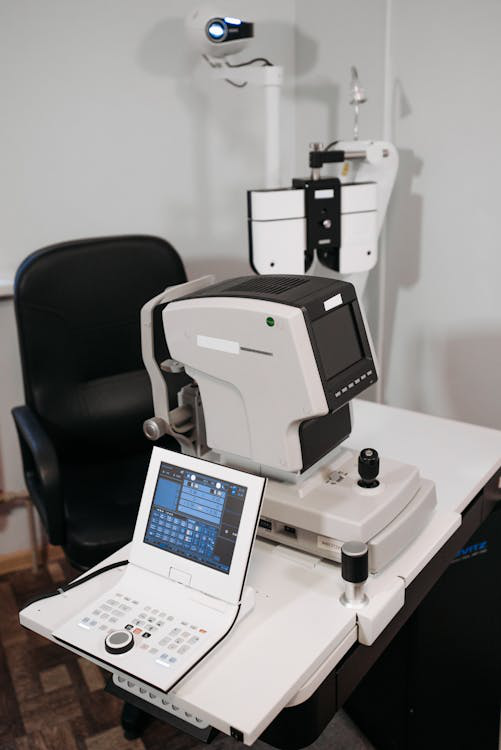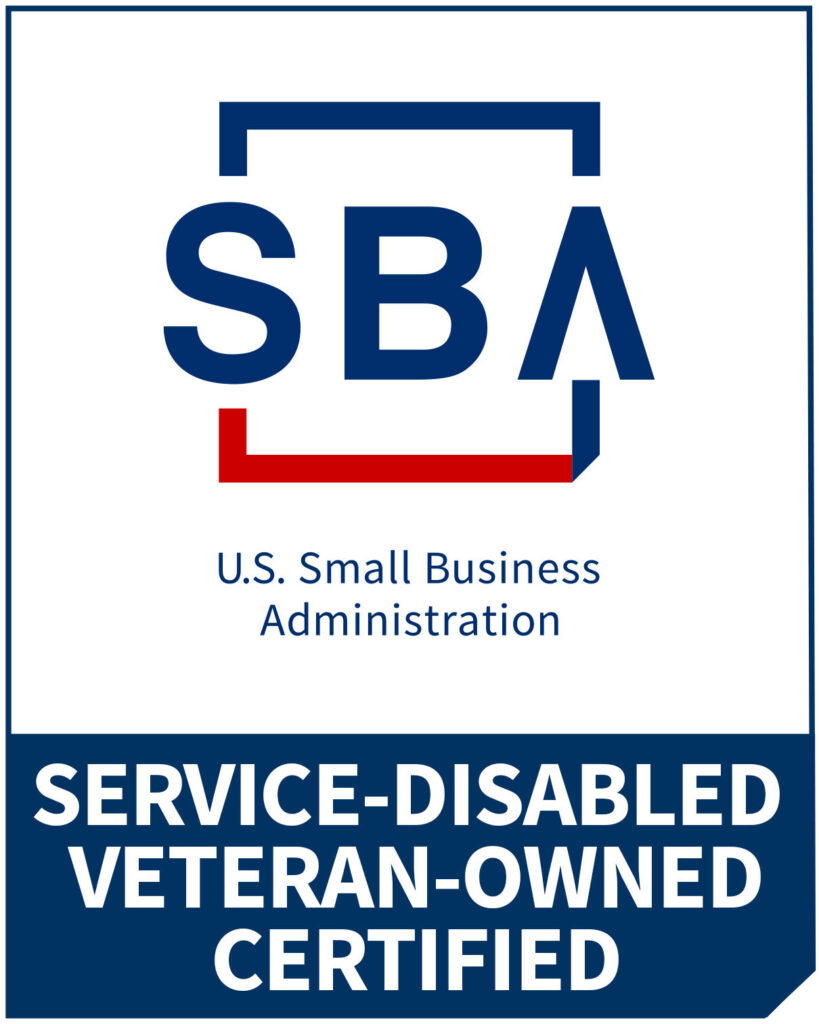Hiring the wrong candidate for a medical sales role can have significant repercussions for a company beyond what may appear on the surface. In an industry where knowledge, relationships, and compliance are critical, a bad hiring decision can lead to not only financial losses in both internal and external recruitment costs but also lasting damage to business operations and reputation.
In this article, Rep-Lite delves into the various facets of the hidden cost of a bad hire in medical sales so that you can make decisions about hiring costs that work for your company.
Importance of Hiring the Right Candidate for the Medical Sales Industry
The medical sales industry faces unique hiring challenges due to its need for professionals with both technical expertise and strong medical sales skills. Complex products like medical devices and pharmaceuticals require knowledge of healthcare, regulations, and patient care. Salespeople must also navigate evolving regulations while maintaining ethics and customer focus. The hiring managers and hiring process are crucial to sourcing the right candidate, as they connect healthcare providers with products that enhance patient outcomes.
With Rep-Lite, you can be assured of successful hires who ensure compliance, product effectiveness, strong client relationships, and support revenue growth and company reputation.
Understanding the High Stakes in Medical Sales
Medical sales is a complex profession that demands not just sales skills, but also the ability to navigate regulatory frameworks and maintain deep product knowledge.
Regulatory Knowledge and Compliance Responsibilities
The stakes are high, as medical sales representatives must stay current on regulations such as the Anti-Kickback Statute, HIPAA, and the Sunshine Act. These laws govern interactions with healthcare providers and ensure transparency and ethical practices in the industry. Non-compliance can lead to heavy fines, legal consequences, and reputational damage, underscoring the importance of staying informed and adhering to regulatory guidelines.
The Impact of Product Knowledge and Relationship-Building on Revenue
Medical sales is a relationship-driven industry where a representative’s understanding of the product can make or break a deal. The wrong person and poorly informed sales reps may miscommunicate product capabilities, leading to lost sales and a damaged reputation. Strong relationships, trust, and expert product knowledge are key to driving long-term revenue.
The Financial Impact of a Bad Hire in Medical Sales
A poor hiring decision in medical sales can result in substantial financial losses and external costs for organizations. Let’s expand on a few of these.
Direct Costs: Wages, Benefits, and Recruitment Expenses
A bad hire incurs direct financial losses through salary, benefits, and recruitment costs. These costs are often compounded by the resources that go into training costs, onboarding costs, and acclimating the new hire to the company’s systems and culture.
Hidden Costs: Training, Onboarding, and Administrative Expenses
The hidden cost of a bad hire in medical sales includes the time and effort invested in training and onboarding the wrong employee, only for the new employees to underperform or leave. These resources spent cannot be recovered and represent a significant sunk cost in the recruiting process.
Lost Sales Opportunities and Missed Revenue Targets
Underperforming hires often fail to meet sales quotas, resulting in lost revenue targets and unrealized business opportunities. The financial losses are even more pronounced when market share is ceded to competitors.
Costs Associated with Employee Turnover and Re-hiring
High turnover is another hidden cost of a bad hire in medical sales as it creates a cycle of continuous recruitment and retraining, increasing both direct and indirect costs for the organization. Each new recruitment process represents a significant drain on HR and management resources.
Operational Disruptions Caused by a Bad Hire
In medical sales, a bad hire can create a ripple effect of both operational costs and disruptions, hindering both day-to-day functions and long-term strategic goals. This disruption can pull management away from critical initiatives.
Negative Effects on Team Productivity and Morale
The cost of a bad hire in medical sales is often observed in the breakdown in team dynamics, as colleagues of the wrong hire may need to compensate for their underperformance. This extra burden can cause frustration, burnout, and disengagement among the rest of the team, reducing overall productivity. Team members may lose motivation, which can lower the quality of work and collaboration, ultimately impacting the sales department’s efficiency.
Impact on Customer Relationships and Service Delivery
Medical sales relies heavily on building strong, trust-based relationships with clients. An ineffective sales representative can mismanage client interactions, leading to dissatisfaction and a breach of trust. When customers feel their needs are not being met or that they are receiving subpar service, this can lead to the loss of long-standing relationships and make it difficult to retain or grow the client base. Restoring damaged relationships often takes time, resources, and effort that could have been avoided with the right person to hire.
Delays in Product Launches or Sales Cycles
The success of product launches and the speed of sales cycles in the medical industry depend heavily on the competence of the sales team. A bad hire can stall this process, leading to delays that give competitors an edge. If a poorly performing sales representative fails to effectively communicate product benefits or manage client needs, it can result in slower adoption rates, missed revenue targets, and the loss of competitive advantage in a fast-moving market.
Time Wasted by Management on Performance Issues
Leaders often have to spend significant time addressing performance issues with bad hires, detracting from their ability to focus on strategic priorities and optimizing sales training. This is time that could have been better spent on growth or innovation.
Brand Reputation at Risk
A new employee who is also a bad hire in medical sales not only jeopardizes sales performance but also puts the company’s brand reputation in many ways.
How a Bad Hire Can Damage the Company’s Reputation
When potential candidates underperform or act unprofessionally, it reflects poorly on the entire organization. In medical sales, trust and credibility are critical to client relationships, and one negative interaction can lead to perceptions of incompetence or poor service. This is particularly dangerous because healthcare professionals rely on accurate information to make informed decisions, and any misstep could lead to lost trust.
Client Dissatisfaction Due to Poor Sales Performance
Poor sales performance not only impacts revenue but also leaves clients feeling underserved. Medical sales reps who cannot deliver on promises or fail to meet customer expectations risk creating a cycle of dissatisfaction that can lead to negative word-of-mouth. In a highly networked industry like healthcare, such feedback can have widespread implications, weakening the company’s reputation in the market.
Legal Risks and Compliance Issues
An unqualified or unethical hire can expose the company to legal risks, such as non-compliance with medical regulations. These risks can lead to costly legal battles, fines, and tarnished corporate image.
Cultural Misalignment

Cultural alignment is a critical, yet often overlooked, factor in the hiring process, especially in high-stakes industries like medical sales.
The Importance of Cultural Fit in the Medical Sales Environment
In medical sales, cultural fit helps build high-performing teams. Sales professionals must balance targets with collaboration, integrity, and adaptability. When a candidate’s values align with these, they are more likely to thrive. A poor fit, however, can disrupt communication, cause friction, and lower overall performance.
Impact of a Bad Cultural Fit on Company Morale and Engagement
Hiring someone who doesn’t fit culturally can negatively affect company morale and engagement. In a field where collaboration is key, even one misaligned hire can upset team dynamics, reduce productivity, and lead to higher turnover.
Difficulty in Integrating New Hires Into an Established Company Culture
Integrating a new hire into a well-established culture is challenging, but it’s much harder when there’s a cultural mismatch. Teams may spend more time aligning the new hire with company values than on core work, straining productivity and management resources. If the gap is too wide, the new hire may leave, increasing turnover and further disrupting the team.
Negative Effects on Future Recruitment
A bad hire in medical sales not only affects performance and revenue but also has a negative impact on future recruitment efforts, potentially deterring high-quality talent.
Impact on the Company’s Ability to Attract High-Quality Talent
In today’s competitive job market, top candidates prioritize companies with positive work environments, strong leadership, and growth opportunities. A bad hire can lower employee morale and productivity, which prospective candidates notice through platforms like LinkedIn. Negative reviews can harm the company’s reputation, making it harder to attract top talent in medical sales.
Reputational Risk Among Potential Future Hires
Word travels fast in niche industries like medical sales. When a company becomes known for making poor hiring decisions or fostering an unstable work environment, it can face reputational damage that extends beyond customers to potential recruits. Talented professionals may avoid joining a company with a reputation for instability, questioning its commitment to talent development and long-term success.
Costs Associated with Attracting Replacements After a Bad Hire
When a bad hire necessitates replacement, recruitment costs escalate significantly. Replacing a bad hire significantly increases recruitment costs, including higher compensation offers to offset reputational harm. The time spent interviewing, training, and onboarding further adds to the burden. If hiring practices don’t improve, the company risks repeating the cycle of bad hires.
Mitigating the Risk of a Bad Hire in Medical Sales
Given the substantial cost of hiring and the risk associated with hiring errors, companies need to adopt a proactive, strategic approach to recruitment.
Best Practices for Recruitment in the Medical Sales Industry
To mitigate the risks of a bad hire, companies should develop a recruitment process tailored to the demands and clear expectations of medical sales. This includes clearly defining the role, required skills, and performance expectations. A focused approach ensures that candidates not only possess the right qualifications but also align with the company’s culture and values.
Importance of a Thorough Vetting and Interview Process
A thorough vetting process is crucial to avoid hiring mistakes. This should extend beyond reviewing resumes and conducting standard interviews. Verifying the candidate’s background in medical sales, including their understanding of regulatory requirements and previous sales performance, can provide deeper insights. Leverage the resources that recruiting agencies have to conduct reference checks, and where possible, speak with former clients or colleagues. This on-demand talent option can save you time and help validate the candidate’s ability to manage relationships and achieve results in this competitive space.
Leveraging Assessment Tools and Behavioral Interviews
To further reduce the risk of hiring errors, organizations should employ assessment tools that measure both technical skills and behavioral traits. Cognitive assessments can help gauge a candidate’s ability to navigate complex sales scenarios, while behavioral interviews focus on how the candidate responds to specific challenges. These insights offer a more comprehensive view of how well a candidate will adapt to the high-pressure, relationship-driven environment of medical sales.
Key Metrics for Evaluating the Cost of a Bad Hire
Understanding the cost of a bad hire in medical sales is essential for improving future recruitment and hiring processes.
How to Calculate the True Cost of a Bad Hire in Medical Sales
Calculating the real cost of a bad hire in medical sales goes beyond adding up direct costs like salary and recruitment fees. It also includes lost sales opportunities, reduced team morale, and the time spent on performance management or termination processes. Companies should evaluate how much revenue was missed due to underperformance and factor in the cost of delays in sales cycles or market penetration.
Metrics to Track During the Recruitment and Performance Period
To measure the success of a hire, organizations should track key performance indicators (KPIs) over time. These can include sales quotas, client satisfaction levels, and compliance adherence. Tracking employee retention rates and team engagement levels also provides insights into whether the new hire is integrating well and contributing positively to the company’s goals.
Tools for Assessing the Financial Impact of Poor Hiring Decisions
Businesses can use various tools, such as turnover cost calculators and performance analytics platforms, to assess the broader financial implications of a bad hire. These tools help quantify the cost of a bad employee in lost productivity, sales, and the additional resources needed to replace and retrain an employee.
Strategic Plans to Recover From the Consequences of a Bad Hire
Recovering from the fallout of a bad hire requires a strategic approach. This might include reassigning client accounts to more capable team members, implementing additional training and development programs, or revamping the recruitment process to ensure better alignment with organizational goals. In some cases, companies may need to engage in reputation management strategies to repair relationships with clients and restore trust in the market.
Summary
In the highly specialized field of medical sales, the cost of a bad hire in medical sales extends far beyond the immediate financial outlay. It affects team morale, client relationships, and long-term revenue, while also posing significant risks to the company’s reputation and future recruitment efforts. Partnering with Rep-Lite can help you mitigate these risks and shape strategies that ensure sustained success in the long run.































